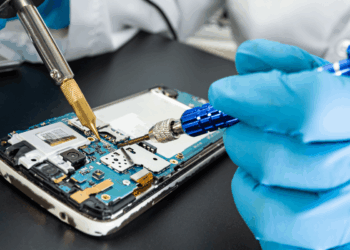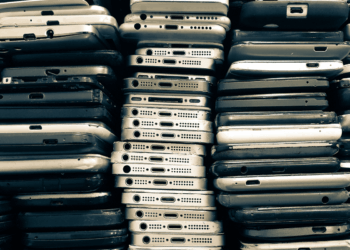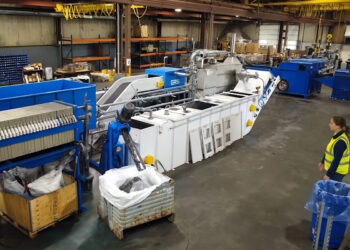Credit: NothingIsEverything/Shutterstock
Legislation advancing in the state of Washington bans the sale of electronics with permanently affixed or otherwise difficult-to-remove batteries.
First covered by Vice.com’s Motherboard, House Bill 2279 is one of more than a dozen right-to-repair bills that have been introduced across the country during current state legislative sessions. Like the others, it requires OEMs to provide information, tools and parts enabling independent shops to repair consumer electronics.
But HB 2279 also explicitly prohibits, starting in 2019, the sale of electronics designed “in such a way as to prevent reasonable diagnostic or repair functions by an independent repair provider.” The bill text specifically restricts “permanently affixing a battery in a manner that makes it difficult or impossible to remove.”
The legislation has passed out of the state House of Representatives’ Committee on Technology & Economic Development. It hasn’t yet been scheduled for a vote by the full chamber.
An issue grabbing attention
Speaking to Motherboard, the bill’s sponsor said the recent controversy around Apple’s step to slow down (or “throttle“) iPhones has put the issue of device repairability in the spotlight.
Apple released a software update that reduced the performance of iPhones with older batteries, drawing lawsuits from around the country. One legal filing even asks a judge to temporarily halt Apple’s battery-replacement program lest evidence in the case be destroyed.
Long waiting times are now being reported for Apple’s battery replacement program, leading many consumers to look at replacing the old batteries themselves. Nathan Proctor at the U.S. Public Interest Research Group (U.S. PIRG) writes at CNN.com that repair hub iFixit’s received more than 500,000 clicks for its online iPhone battery replacement guide since the throttling news broke.
According to iFixit’s guide, replacing an iPhone 6 battery requires 25 steps and is rated “moderate” in terms of difficulty. The phone requires special tools to access and uses an adhesive to secure the battery.
SERI weighs in
Sustainable Electronics Recycling International (SERI), which manages the R2 electronics recycling standard, also weighed in on the environmental costs of devices with difficult-to-replace batteries.
Sealed-in batteries lead consumers to replace their phones early, according to a SERI newsletter write-up, and they also harm reuse and recycling.
“In phones with embedded batteries, the cost to repair skyrockets compared to competing phones designed with user-replaceable batteries,” according to SERI. “Again, this results in additional premature scrapping of devices with embedded batteries because they are deemed ‘beyond economic repair.'”


























